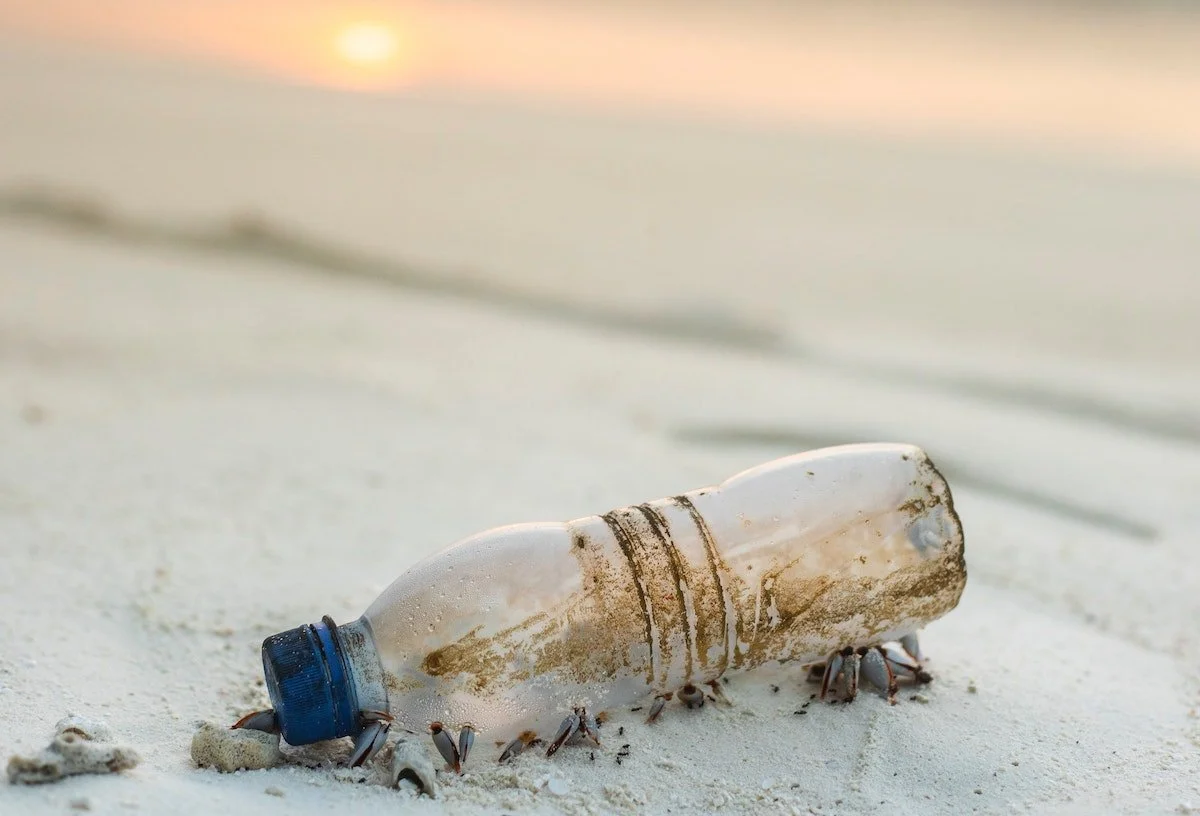A More Sustainable Solution to Plastic Packaging
OPEN JOURNAL
A More Sustainable Solution to Plastic Packaging
BY: Tanya Flink
We have a plastic problem, and we’ll be the first to admit it. While multiple industries are responsible for single-use plastics, the food industry has undoubtedly abused this material. Virtually every food item one can buy from a grocery store is packaged with plastic—from almond milk to lettuce. More often than not, these temporary containers find their way to landfills or fragile ecosystems where they are buried or burned. At Abbot’s Butcher, we also use plastic, but we are being proactive. To offset the plastic we put into the market through our packaging, we have committed to recovering the same amount of plastic from landfills, pound for pound. To accomplish this, we’ve partnered with Replenysh. With a mission to end landfills and plastic pollution as we know it, this company is helping to mitigate the environmental and ecological destruction caused by plastic waste. We have already recovered over 20,000 pounds of plastic thanks to Replenysh’s boots-on-the-ground efforts. We sat down with Replenysh founder Mark Armen to learn more about this plastic problem and the necessary work to counteract it.
The Start of Replenysh
Sustainability is top of mind for many people these days. For some, their concern for the planet has led to daily habit change by way of eating more plant-based and carrying reusable water bottles. But the sustainability argument hasn’t always been buzz-worthy, and typically people don’t make the connection between their actions and their consequences until adulthood. Mark is different. Growing up in Southern California as a self-professed beach kid, he noticed all the trash along the sand and in the water. He made it a habit to pick up whatever he could, and this sentiment stuck with him through college.
“In my mid-twenties, something came over me and I said I wanted to build a business that can solve environmental and social problems,” explained Mark.
Mark attended business school with this goal in mind, and when he graduated, he started working for companies with a mission to drive circular—rather than linear—economies. He learned about the broken infrastructure of how we hastily discard materials. Typically, materials are used once and come to a dead end—a landfill. The trajectory is fatally linear. Mark’s vision for a circular economy—one in which materials are used and moved to the right places where they can be made anew—is what Replenysh is all about.
The Replenysh Mission
With experience under his belt and a clear vision for a sustainable solution, Mark launched Replenysh in 2016. The company works with brands that are invested in taking a more holistic approach to their business and the repercussions it has on this earth. According to Mark, it’s not about complete deprivation—using cardboard, aluminum, and certain plastics is a necessary evil for some companies for the sake of their affordability and mass availability. The key is what these brands do after they move their products into the market. Do they work with companies like Replenysh to ensure their plastic use is offset by effective recycling efforts, or do they do nothing?
Abbot’s Butcher has committed to Replenysh’s sustainable solution. Because our packaging is made with recycled materials, we work with Replenysh to reclaim 100 percent of the plastic we put out into the market, pound for pound. Of course, we’re always looking for more environmentally friendly packaging solutions, but for now, we’re making a concerted effort to ensure our plastic trays are not contributing to the gargantuan landfill issue.
Recycling and the Environment
Most of us were taught at an early age to recycle. It’s often presented as an option instead of a necessity, but the reality is that recycling can significantly reduce the environmental burden that waste puts on our planet. According to the Environmental Protection Agency, landfills are the third-largest contributor of human-related methane emissions in the US. This is concerning, as methane is one of the major gases that exacerbate global climate change. The more materials we can keep out of landfills, the less methane emissions we will produce.
Mark emphasized that these seemingly single-use materials like plastic, glass, cardboard, and aluminum have value. In the right facility, they can be transformed into something new. The key is to ensure these materials make it to that facility instead of the trash bin.
Again, it’s not about an all-or-nothing approach. You don’t have to swear off packaged products—just be a bit more conscious about what happens to the cans, bottles, and boxes after you use them.
“Every behavior matters,” Mark emphasized. “Make a more conscious decision of what happens to your materials when you’re done with it.”
We’re committed to advancing sustainable solutions, and we’re proud to partner with Replenysh to accomplish this.
Learn more about our commitment to the planet here.

